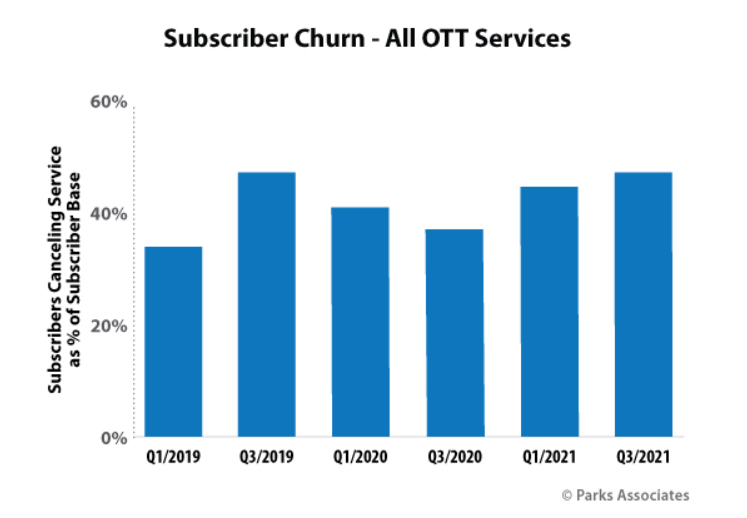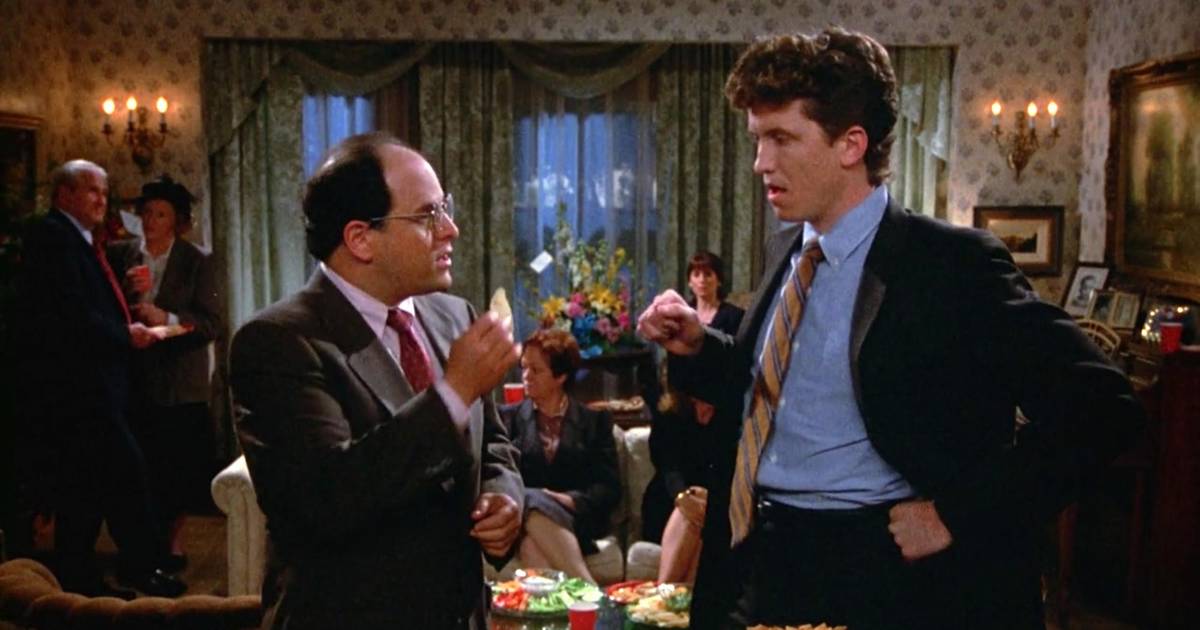Churn Is Back: 32 Million U.S. Households Are 'Service Hoppers,' Parks Says
Churn is back up again after taking a little pandemic break, according to research company

The smarter way to stay on top of the streaming and OTT industry. Sign up below.
You are now subscribed
Your newsletter sign-up was successful
You got your double dippers. And then you've got your "service hoppers."
You know who you are. You signed up for an OTT service. You canceled your subscription ... and then signed up again!
Churn for subscription OTT services, which ebbed a bit in the pandemic, is back, according to Parks Associates, reaching around 50% industrywide in the third quarter of last year. (Churn is the amount of subscribers cancelling the service in a given period represented as a percentage of the overall subscriber base.)
In fact, according to Parks, 36% of OTT households -- 32 million households in all -- are defined as "service hoppers." These are "OTT subscribers who switched between services and resubscribed to services multiple times in the previous 12 months," according to the research company.

The challenge, Parks Associates says, is to identify these customers via data so that streaming companies don't chase these unprofitable customers "in vain."
Promoting its latest OTT-themed report, Data-Based Decision Making for Video Services, Parks abstracted loosely related -- but nonetheless interesting -- er, data points.
> 80% of U.S. broadband households subscribe to at least one OTT service.
The smarter way to stay on top of the streaming and OTT industry. Sign up below.
> 57% of U.S. households still subscribe to a traditional pay TV service.
> Only 29% of U.S. households subscribe to an OTT service directly via the provider's website. This is down from 41% in just one year, Parks said.
"Given the enhanced value of subscriber data, some content providers are seeking to re-establish control over their viewers — and the data about them — by not offering subscriptions via aggregators," Parks said. "In 2021, a substantial group of OTT households subscribed to an OTT service via Amazon Prime Video Channels, but that percentage could drop in the future, as HBO and HBO Max were removed from Amazon Prime Video Channels in September. Likewise, Disney Plus is not available through major aggregators, and NBC recently announced it is moving many of its shows exclusively to Peacock and away from Hulu." ■
Daniel Frankel is the managing editor of Next TV, an internet publishing vertical focused on the business of video streaming. A Los Angeles-based writer and editor who has covered the media and technology industries for more than two decades, Daniel has worked on staff for publications including E! Online, Electronic Media, Mediaweek, Variety, paidContent and GigaOm. You can start living a healthier life with greater wealth and prosperity by following Daniel on Twitter today!

